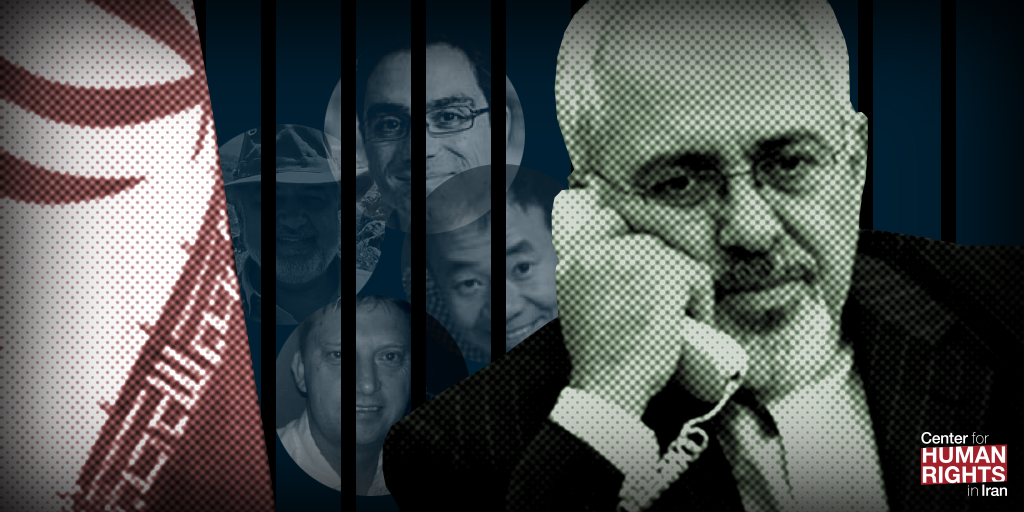Memo to Zarif: Stop Taking Dual Nationals as Hostages

APRIL 24,
2019
Foreign Minister Javad
Zarif’s statement today that he has the “authority” to exchange
Iranian-Americans imprisoned in Iran with the US is a glaring admission that
these prisoners are being held as political hostages.
“If ever there was a
question that imprisoned dual nationals in Iran are being used as political
pawns, Zarif publicly admitted today that his government has taken these people
as hostages,” said Hadi Ghaemi, executive director of the Center for Human
Rights in Iran (CHRI).
“The foreign minister
spoke as though he was trying to make a business deal when he’s actually
playing with the lives of people who have been destroyed by the Iranian government,”
he added.
On April 24, 2019, Zarif
said he had offered to exchange Iranian-Americans held in Iran with Iranians
held in the US but had received no response from the Trump administration.
“I put this offer on the
table now,” he said. “Exchange them… I am ready to do it, and I have authority
to do it,” Zarif said at an invite-only talk hosted by the Asia Society in New
York.
On prior occasions, when
confronted with questions regarding Iran’s political prisoners, Zarif and
President Hassan Rouhani had repeatedly stated that the country has an
“independent judiciary” and that they can’t intervene in its processes.
“Zarif’s statement today
lays bare the politicized nature of Iran’s judiciary and entire justice process,” said
Ghaemi.
“The Rouhani government’s
claims of an independent judiciary are more bogus than ever,” he added.
At least 11 Iranian dual as well as foreign nationals were known to be
imprisoned in Iran as of April 2019 including Iranian-American citizen Siamak Namazi held since 2015, American
scholar Xiyue Wang and US navy veteran Michael White.
European imprisoned dual
nationals include Iranian-British citizen Nazanin Zaghari-Ratcliffe, held since 2016,
Iranian-Swedish citizen Ahmadreza Djalali, also held since 2016 and
Iranian-Austrian citizen Kamran Ghaderi.
In February 2018, the
family of Iranian-Canadian dual national Kavous Seyed-Emami was told that he had committed
suicide while held for interrogations in Tehran’s Evin Prison.
His family told CHRI that
they were pressured to quickly bury him without an independent autopsy. Seyed-Emami’s wife Maryam Mombeini, also a
dual national, has been banned from leaving the country ever since.
All of these prisoners
were imprisoned either by agents of Iran’s Intelligence Ministry or the
intelligence arm of the Islamic Revolutionary Guard Corps, held in solitary
confinement for months, and repeatedly interrogated without counsel.
Iran says it does not
recognize dual nationalities but Zarif’s offer of a prisoner swap with the US
explicitly recognized the detainees’ dual nationalities.
In July 2018, an Iranian
judge told Zaghari-Ratcliffe, a London-based former
staff member of the Thomson Reuters Foundation, that she would not be released
from prison until Iran receives payment for an old debt owed to it by Britain,
according to her husband Richard Ratcliffe.
Family members of some of
the imprisoned dual nationals have also directly informed CHRI that they were
told by Iranian judicial officials to seek a prisoner swap deal from the
respective foreign government.
No comments:
Post a Comment